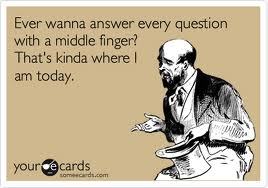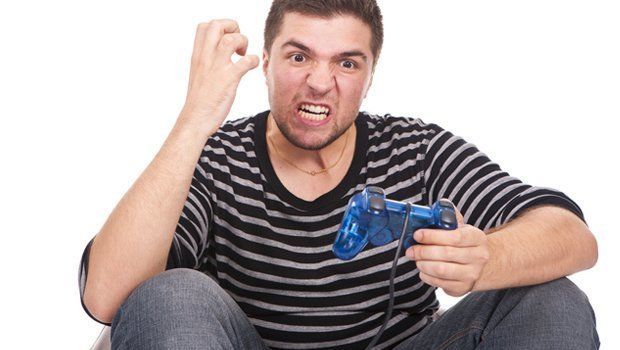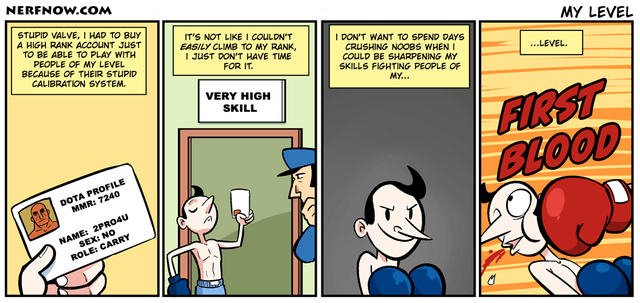Rage quit. We’ve all been there at one point or another in online multiplayer, and don’t you try to deny it!
Maybe it was because you lost 10 straight games in a row despite being fully farmed, having the highest KDA on the team, but then your allies fed kills to the other team. Maybe it was because some “person of undesirable character traits relatable to that of an equally unpleasant feminine hygiene product” decided to troll your team, or was just being generally uncooperative. Maybe you just had a crappy day at work?
Whatever the case, it is hard to deny that players in just about any online multiplayer game can be downright toxic.
So what are companies doing about it?
Toxic communities have become so bad over the years that game companies such as Riot Games has invested a great amount of resources to “cure” its only game – League of Legends – from the plague of toxic players. Other companies – such as Nintendo – have taken a different approach, removing some (if not all) player communication abilities from their video games. The best examples of this are Mario Kart 8 where players can only use preset lines to communicate at the end of a match, or Splatoon where communication is limited to “Booyah!”s and “Come on!”s.
Nintendo’s no-communication policy has been both the highlight of its success with online multiplayer, while also being considered as one of its most controversial moves among its online community.
Silence is not so golden…
While Nintendo’s policy of keeping its online community “silent” during gameplay seems to help reduce the audio-visual toxicity of the online environment, players still find workarounds to this.
The easiest example to think of is the online troll who will stop at no lengths to sabotage his allies’ progression no matter what game it is. Splatoon, for example, has no ban system since it is a game that revolves around the multiplayer aspect. To have a ban system would mean that players would be denied the game they spent hard-earned money on, and thus it would feel unfair. However, trolls have taken advantage of this in ranked modes such as Splatoon‘s ‘Rainmaker’ match mode. Similar to capture-the-flag in many aspects, players have often taken the Rainmaker and run toward their own base in an attempt to sabotage their own team.
Without a ban system or communication of any sort, it’s difficult to separate the trolls from the people who genuinely have no idea what they’re doing. All you can do is leave the lobby and pray.
Other online games have tried using similar methods to silencing toxic players. An example that frequently comes to mind is DotA2 where Valve has implemented a chat wheel mechanic. While this was originally designed to ensure players would no longer have language barriers when playing on international servers, it has recently become the method of communication for toxic players who have been reported for communication abuse.
However, this has once again opened up the chance for a workaround. This time, players have been actively using the chat wheel to spam lines such as “Good game!” or “Well played!” to act as a placebo version of flaming teammates. While this would seem innocent enough, any player who has encountered toxic players before can tell the true intent behind these messages. The system has become so controversial on both sides that it has warranted this parody by YouTuber Eric Wright.
Warning: may contain language unsuitable for… ah, screw it. Toxic players are mostly 6-year-olds anyway.
So what can we do RR-sama?
Honestly, I’m not sure there is anything we can do. At least, not in the online world itself. Right now the issue at hand when it comes to online gaming is the anonymity of the internet mixed in with the ethics of permanently barring players who pay to play a game. While there is little we can do about the latter part, there are some steps we can take to help fix the former.
A good example of steps toward a less toxic community is curing the toxicity within ourselves. Like it or not, that “person of undesirable character traits relatable to that of an equally unpleasant feminine hygiene product” is a person too. Sometimes they aren’t always as unpleasant as they are in that one game you played with them. Some of them might have just had a bad day at work or school that caused them to vent while in game.

I’m pretty sure we’ve all been here at least once…
I guess what I’m trying to say here is that empathy can go a long way, and it seems to be a thing that is lacking in our modern social media society. While I can’t exactly say that things were pristine back in the 90s, I have noticed a growing trend of toxicity both online and offline in recent years. Perhaps the anonymous nature of the online world is beginning to leak into the real world?
Who knows. It’s not like I’m a sociologist or something!
So are you telling us to just give up, RR-sama?
No! Not at all!
However, what I am saying is that you can’t control other people. Sure, if you had the ability to create some sort of sedative drug that could somehow lower a person’s tendencies to become toxic, then go for it! However, as it stands there is no way to stop a jerk from being a jerk.
The media certainly doesn’t help. We tend to worship people who are in it for themselves, while the ones who help people on a daily basis tend to get 30 seconds of fame on the news. We have truly become a self-centered society, and it is a breeding ground for this self-declared elitism that we see in gaming.
One thing we can do is make changes in ourselves, and in those who are in our immediate areas. The “I have to win” complex is an unhealthy one, one that has been nurtured into us – like it or not – by the generation before us. Whether or not people would consider themselves “entitled,” the second that one demands anything without putting in their fair share of work they are acting as though they are “entitled” to something.
This goes the same for gaming culture. If you want to rise the ranks of MMR, you have to work for it. That means not only improving your own game, but also improving that of your teammates. Just because you’re losing, doesn’t mean that it’s because your team outright sucks. There’s a reason you’re in the MMR bracket you are in. If there was a problem with the system, pro players would be stuck in your same bracket. Whether you’d believe it or not, you’re nowhere near as good as the people you think you should be playing with.
An accurate representation of what trench-tier “pro-players” would suffer if they ever managed to get into the rank they think they should be in…
As for the general toxicity of the online world, that is a much more difficult part to tackle. I for one tend to imagine the worst case scenario when it comes to whether or not I should be nice to someone online. In a world where doxxing is as easy as searching on a website, I would always keep a rule of thumb of not ticking off the person on the other side of the wire.
Then again, I keep this rule in the real world too. That guy you honked because you think he’s a bad Asian driver? He could have links to the Yakuza or the Triads and be armed with a gun. Might not be a good idea to tick him off.
But what about the future, RR-sama?
The future is the future, as I like to say. However, there are certainly steps we can take – as the first generation of parents who have spent a great portion of their lives online – to prevent this from happening in the future.
I for one have promised to make sure that my own child would understand the all-powerful ‘block’ function. As someone who was constantly bullied in school, I never understood news stories about cyberbullying.

How the block button ought to be explained. Maybe then people would use it more often, and we would have less cyberbullying!
Unlike in-school bullying, it’s the one thing you can actually prevent by yourself. I understand there’s the whole “oh, but they want to stay connected with ____” argument, but give your kids some backbone, people! Being liked by everyone is not something you’re going to be able to do. In fact, the day humanity comes to a consensus on liking every other person in the world is the day we will see peace on Earth, and that’s not happening anytime soon.
PS: I know it’s not exactly that cut and dry, but it is certainly a step forward.
Other suggestions I would make for our future gaming progeny would be the following:
- Losing a game is not the end of the world. It may feel like you wasted ___ amount of time on a game, but if you’re only playing to win then it’s not a game anymore. It’s work. And work sucks.
- If someone is being mean to you in a game, try imagining them with an over-the-top silly face while saying it. That way they look stupid, and you can keep enjoying your game. Besides, they’re only mad because they don’t know how team games work.
- If someone says you’re bad at a game, but they aren’t straight-up attacking you, maybe you should consider the possibility that you’re just bad at the game? Get better, come back, and beat them to a pulp next round!
- The most satisfying way to deal with a cyberbully is to take their words and use them to your advantage. It’s always fun to catch people off guard with some positive turn-arounds!
That’s about it, really.
Maybe you have some of your own ideas on handling online toxicity? Do you think companies should be taking such an active role in dealing with the toxicity of players? Do you think they should be doing more? Leave your thoughts and opinions in the comments section below!










Published: Oct 20, 2015 07:23 am